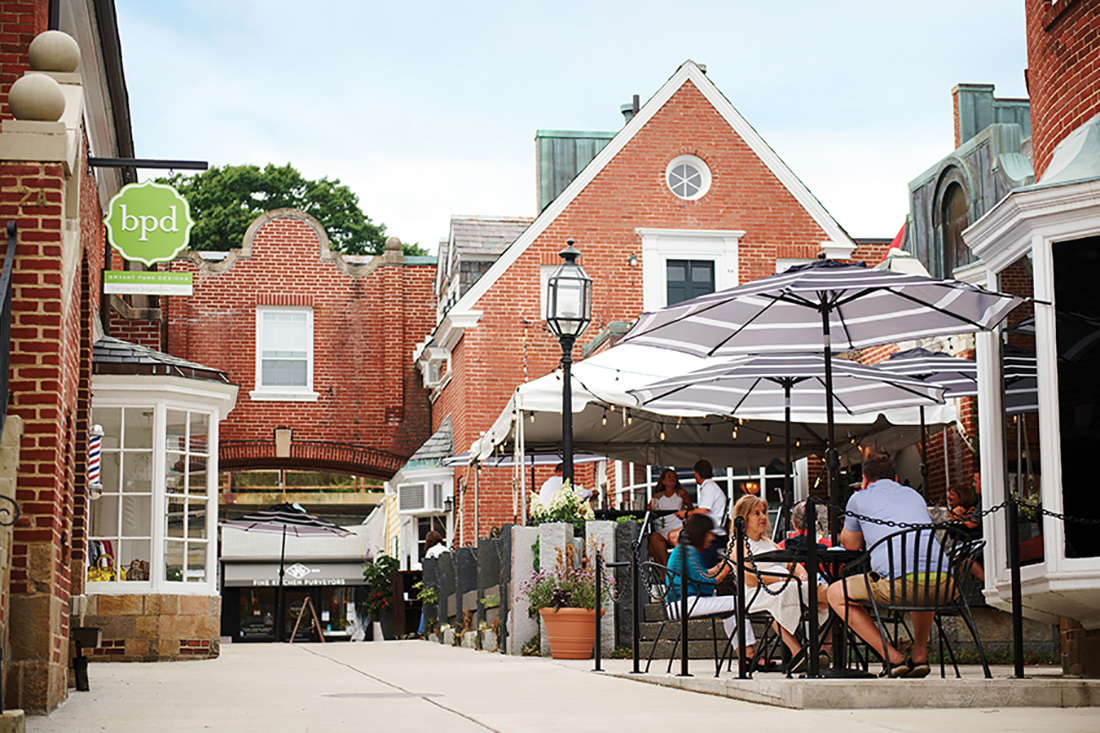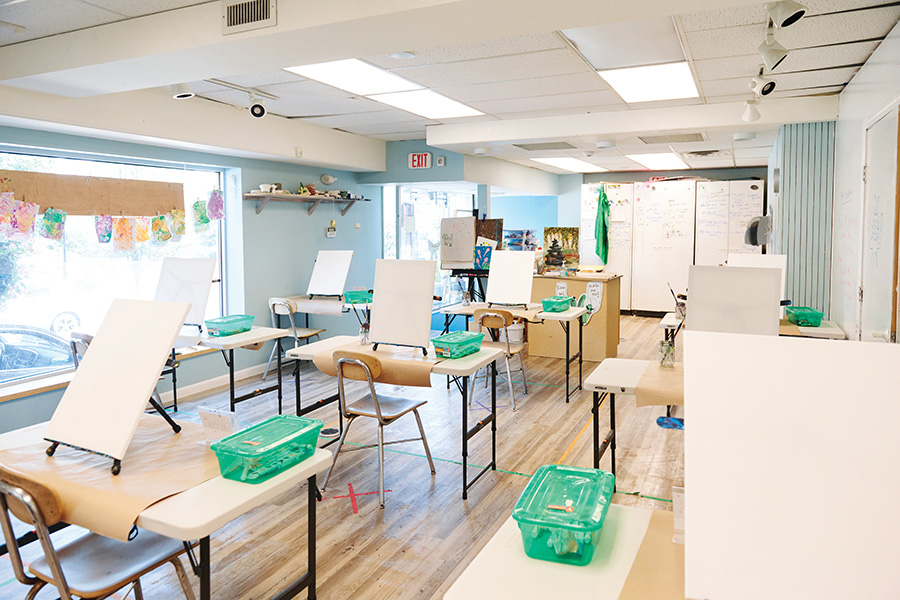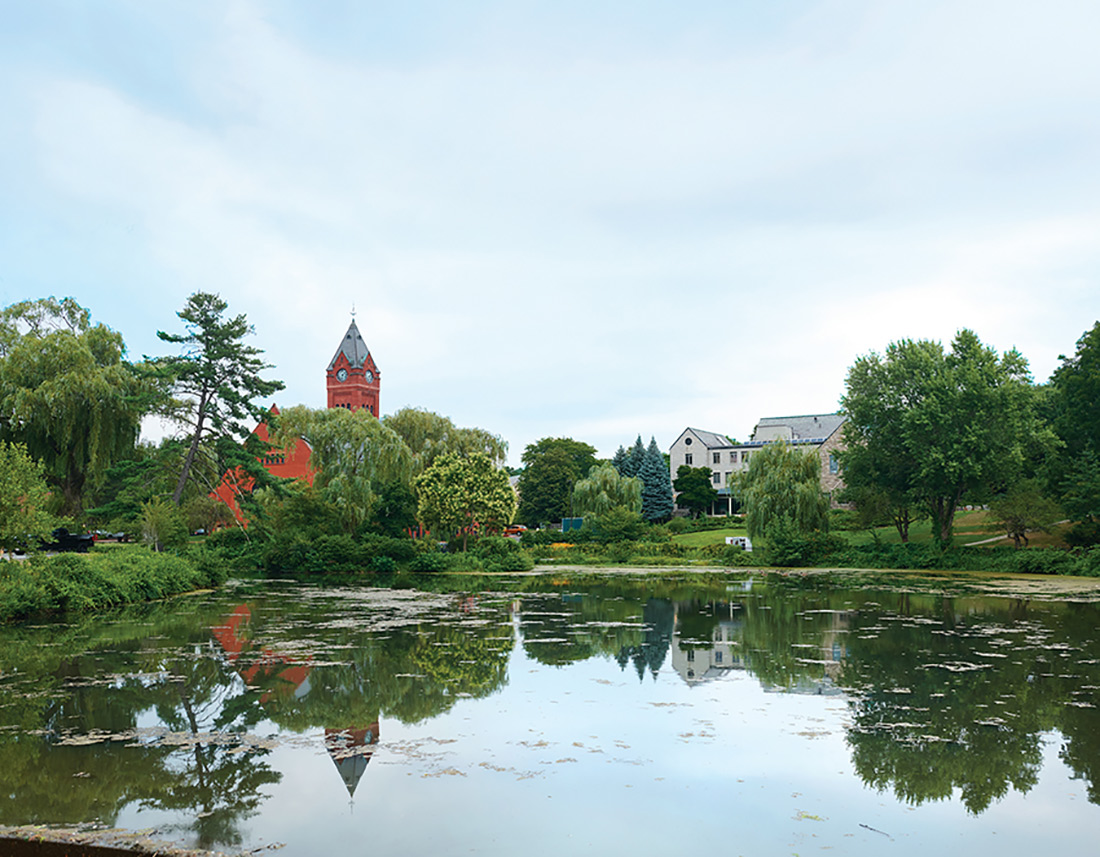There’s a certain stereotype of the quaint New England town. The small downtown where small businesses ply their trade, chatting with the regulars. The community events where everyone pitches in. The white church with a towering steeple standing sentinel over one end of the town center.
In Winchester, a town nestled at the edge of the more urban core around Boston, this vision is more than just a cliché—it’s everyday life.
“Winchester is a really fantastic community,” says town manager Lisa Wong. “There’s a lot about it that makes it special.”
Present-day Winchester was first settled by white colonists in 1640. These first European residents came from the settlement of Charlestown, to the south, and called their new home Waterfield. It was, like many villages of the era, a quiet farming town, though it was home to the Black Horse Tavern, a meeting spot for soldiers in the run-up to the Revolutionary War. By the end of the 18th century, just 35 houses stood in town and the population hovered around 200.

In the 1800s, grist mills and then more modern factories opened in town, taking advantage of the power supplied by the Aberjona River. At the same time, businessmen were moving into the area, drawn by both the bucolic surroundings and the easy access to Boston. Winchester’s population grew rapidly until the mid-1900s.
Today, growth has leveled off. The factories and mills have closed, but the town’s combination of charm, beauty, and proximity to the city remains appealing to commuters, professionals, and families.
The downtown is one of Winchester’s most notable features, say those who live in (and love) the town. The center is anchored on one end by a classic New England white church and on the other by a stately brick town hall and a granite-faced public library. Lined with small, locally owned businesses, many set in historic red-brick buildings, downtown is an active place at the heart of the community.
“We have a downtown historic center where people can really meet and greet each other,” says Catherine Alexander, executive director of the Winchester Chamber of Commerce. “People are very loyal to the retailers and the restaurants.”



The diversity of shops and eateries make the center a pleasant place to stroll and browse. At Recess Boutique, Runway Couture, and SoleAmour, shoppers choose from a carefully curated selection of stylish apparel. For home décor and gifts, there’s Studio on the Common or Home. If you get hungry, you could grab a sandwich or a snack at Fuller Cup, an innovative sushi roll at The Spot, or an authentic Italian dinner at Lucia Ristorante.
“We have a unique center—it is vibrant,” says Dot Butler, a longtime resident and active volunteer in several community organizations in town.
Outside of the town center are street after shade-dappled street lined with elegant Victorian homes as well as opportunities to enjoy the outdoors. At the historic Wright-Locke Farm, visitors can explore trails through fields and forest, visit with livestock, and enjoy locally grown and produced foods. At the eastern edge of town, the Middlesex Fells Reservation gives locals and visitors a chance to escape to a peaceful woodland without wandering too far afield.
The Details
Date of Settlement
1640
Date of Incorporation
1850
Area
6.293 square miles
Population
22,677
Zip Code
01890
Median Household Income
$159,536
Notable Residents
Anchorwoman Kim Khazei, Olympian Alicia Sacramone, professional wrestler Kofi Kingston, Boston Bruins coach and general manager Harry Sinden, Aerosmith guitarist Brad Whitford, Actor John Cazale
Schools
Ambrose Elementary School, Lincoln Elementary School, Lynch Elementary School, Muraco Elementary School, Vinson-Owen Elementary School, McCall Middle School, Winchester High School
The sense of community that connects the town has always been strong, but has come to the fore during the coronavirus pandemic.
“I think every single person in the town is working together to keep our community alive,” Alexander says.
The chamber of commerce has distributed masks to local businesses to help keep employees and customers safe. The chamber also made yard signs promoting “Winchester spirit” and sporting the town’s zip code, 01890, that can now be seen all over town. When it came time for the annual tradition of collecting donations to fund hanging flower baskets, Alexander was a little worried about asking for money during a time of crisis.
“But in fact they came through magnificently,” she says.
Picnic tables have been set up in green spaces around the center, giving people places to enjoy takeout in the open air while still feeling part of the community. And a group of concerned teenagers has started a social media campaign to demonstrate that wearing masks can be a cool thing to do, Wong says.
While everyone agrees it is a time of uncertainty, there is an optimism in town that Winchester will able to thrive despite current challenges.
“It takes a whole community to make it work,” Butler says. “And Winchester has risen to the occasion.”

